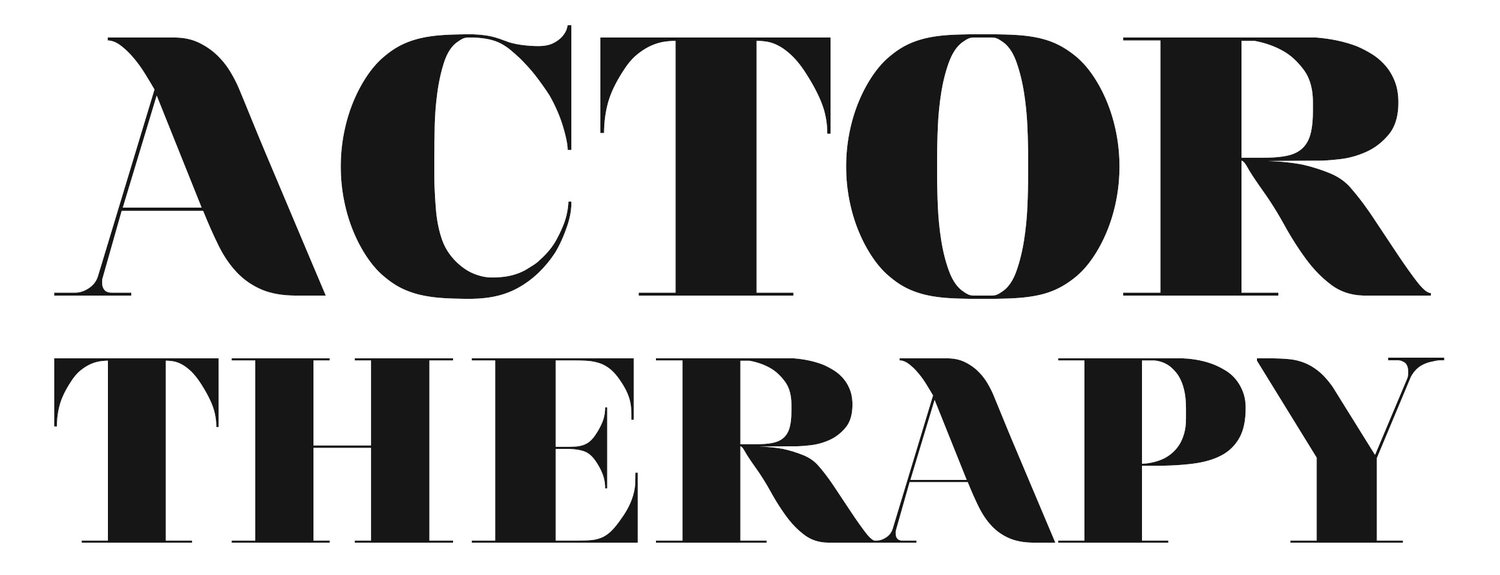Dis Bish Is Taking The Mask OFF!
By Kim Onah (Actor Therapy Student since 2017)
THERE I WAS, sitting in the backseat of a car, apprehensively conversing with my Uber driver, a man who I had learned was from the same Nigerian village that my dad was from. At some point in the drive, he asked me where I went to school. I told him I had graduated already, hoping that piece of information would be sufficient. He pressed on: “Where did you graduate from?” “Harvard,” I said, knowing full well what was coming next. “Wow you must make a lot of money,” he said with a big grin on his face. I didn’t respond. “What are you, like an engineer?”
“Yes… yes I am,” I lied.
“Oh my. Your parents must be so proud of you,” he said, beaming at me in the rearview mirror.
“Oh, they are,” I spit out.
One thing I’ve learned in the two years I’ve been in NYC is that people, especially those in this industry, LOVE their labels. Whether we’re being typed out of an audition that we’ve been waiting hours to be seen at, or typecast in roles that bolster harmful stereotypes, like the “black ghetto friend” or the “dumb blonde,” we’ve all been labeled incorrectly at some point in our lives. What’s crazy is just how easily we stuff ourselves into the boxes that others create for us, be they casting directors, Uber drivers, friends, or family. I’ve realized that I’ve been stuffing myself into these tiny boxes all my life.
Growing up on Staten Island, my identity was formed by those in my predominantly white Catholic school. I often felt like I was trapped in a box. I was being typecast, so to speak, in the roles of “black girl” and “Oreo.” I was this soft-spoken, nerdy black girl who didn’t live up to the expectations her friends had of black people. I didn’t think much of it at the time. In fact, I lived in these labels. I reveled in them, laughed at them, and played to them. I was consistently playing a character, even to my closest friends. In the end, I was more focused on living up to other people’s expectations and perceptions than I was on building my own identity.
Carol Dweck, Stanford University psychologist and author of the book Mindset: The New Psychology of Success, calls this phenomenon a fixed mindset. In her book, she talks about the consequences of thinking that your intelligence and personality are fixed or static. A fixed mindset, Dweck writes, “leads to a desire to look smart, and therefore a tendency to avoid challenges, give up easily, ignore useful feedback, and feel threatened by the success of others.” Whereas the “Growth Mindset,” as Dweck calls it, “leads to a desire to learn and therefore a tendency to embrace challenges, persist in the face of setbacks, learn from criticism, and find lessons and inspiration in the success of others.”
“But how do I create a growth mindset when I work in an industry that is so quick to stereotype?” That’s a great question, and I myself am still trying to answer it. Living in one’s truth is hard and scary.
Think about it this way, though: grounding yourself in a fictional character also comes with its own pressures and challenges. When we live in what is predictable, we actually prevent ourselves from being seen. When we settle for a one-dimensional self, we get lost in the shuffle. The very act of defining ourselves by others’ categorizations closes us off to great opportunity.
In his book, Failing Up, Leslie Odom Jr. talks about his experience with tokenism, or typecasting, whilst living and working in Los Angeles. He laments the time in his life when he allowed himself to get stuck in a persona for more than a decade.
“The lure of tokenism in my business, and in any business, really, is that it’s easy. Tokens are window dressing mostly. They’re props. You can make a living as a token, but you’ll long for more. I showed up in Hollywood and tacitly agreed to play this game. More than that, while I longed for more, for some time I allowed myself to think this was all I would ever be used for.”
Accepting that we are one thing instead of any ten other things means that we close our minds to possibility, to improvement, to growth.
When I arrived at college, the opportunity to reinvent myself was so exciting, but also an extremely daunting challenge. What if people didn’t like the version of me I created? What if I failed at being me?
I slowly but surely learned that I didn’t have to prove anything to anyone. I didn’t have to be what other people assumed I should be—I could write my own story, and delineate my own character. College was my first attempt at walking away from the labels I had lived in for so long, and here’s some of what I’ve learned from that experience: I’m more than the color of my skin; I’m more than my college degree; As delicious as they are, Oreos ain’t me;” and dynamite does come in small packages! Be who you want to be, regardless of the labels on your boxes. I promise you, the people behind the table will notice.
KIM ONAH is an actress, writer, and singer based in New York City. She graduated from Harvard University in 2015 with an AB in English and Music. Theater credits include Effie White in Dreamgirls, Mrs. Crowe in A Man of No Importance, Joanne in Rent, Dionne in HAIR, Nettie in Carousel, and Martha in Spring Awakening. Kim's interests outside of music and theater include playwriting, composing, and running.









